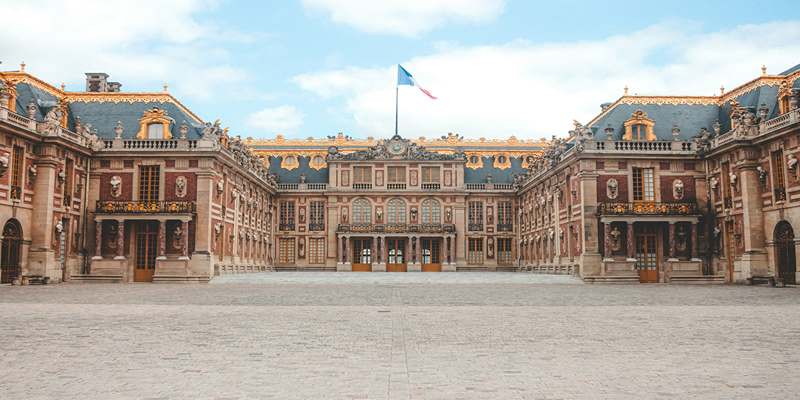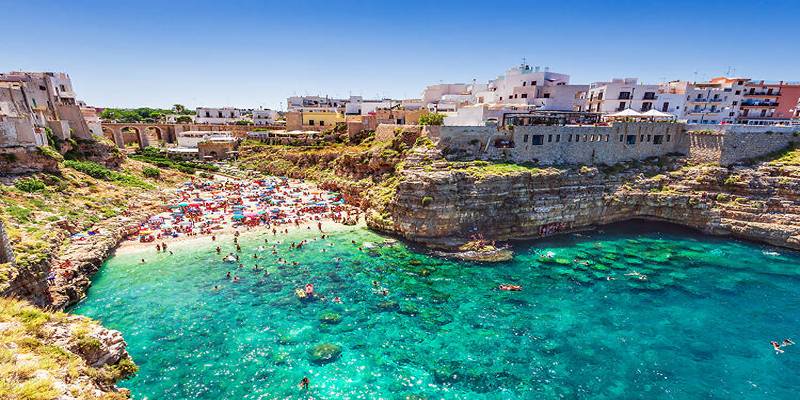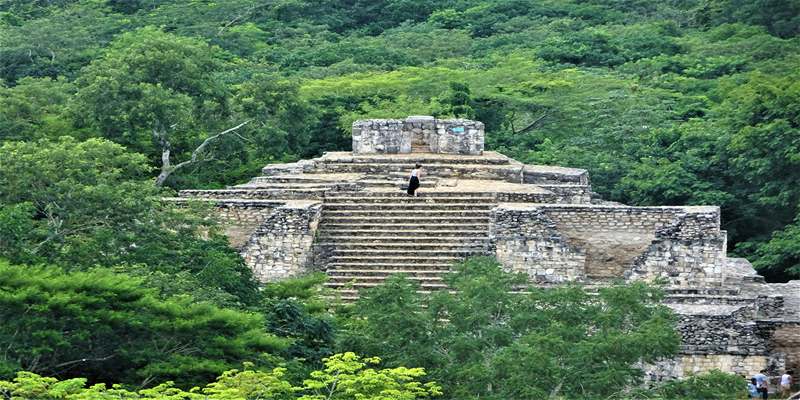Georgia’s Soviet history is layered, complicated, and still very present. While modern Tbilisi hums with street art and creative energy, the echoes of its Soviet past remain woven into the landscape. From stark monuments and brutalist buildings to once-grand sanatoriums and eerily frozen towns, these places hold stories that go beyond textbooks. They’re quiet, unsettling, and oddly beautiful reminders of a different time. You don’t have to be a historian to feel the weight of the past in these places. You just have to walk through them with your eyes open.
6 Best Places for Experiencing Georgia's Soviet Heritage
Chiatura: The Cable Car City Frozen in Time
Chiatura doesn’t feel like a museum — it feels like the past just never left. Built into steep limestone cliffs, this mining town was once a vital cog in the Soviet industrial machine. To connect the mines with the town above, a web of cable cars was strung across the valley in the 1950s. They weren’t for show — they were part of daily life.
Some of those original cabins still hang there today, creaking in the wind like relics that forgot to retire. Around them, weather-stained buildings and rusted machinery tell the story of a place built for purpose, not comfort. Chiatura hasn’t been polished up for visitors — and that’s exactly what makes it so striking.
Tskaltubo: The Grand Ruins of Soviet Wellness
Tskaltubo doesn't look like a resort town at first glance — more like a place time forgot. But back in the Soviet era, it was one of the most prized destinations for state-sponsored relaxation. Built around natural mineral springs, it pulled in everyone from high-ranking officials to factory workers sent on mandatory rest. At its height, over 20 sanatoriums dotted the town, each with its style and purpose. Now, many stand empty.
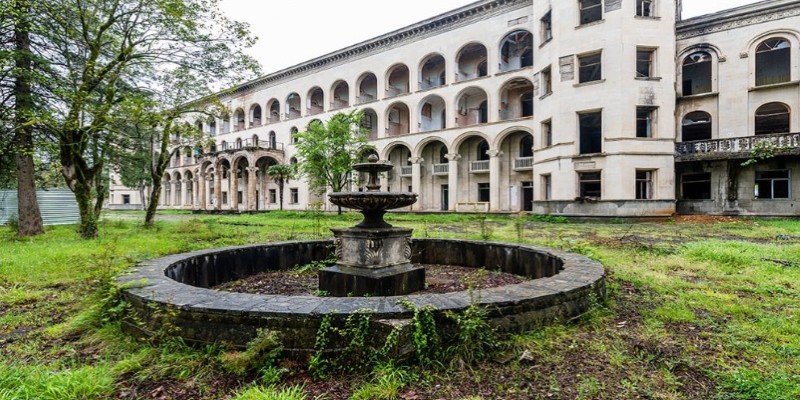
Staircases curve into silence. Rooms that once hosted dances and treatments are slowly being reclaimed by nature. Some, like Sanatorium Iveria or Metallurgy, still hold peeling murals and toppled busts of Lenin. A few are now home to families displaced by conflict, turning these ghostly halls into lived-in spaces again. Tskaltubo feels like it's hovering — part memory, part reality.
Stalin Museum in Gori: A Tightly Controlled Memory
Gori is the birthplace of Joseph Stalin, and its Stalin Museum remains one of the most controversial Soviet-era sites in Georgia. The museum was opened in the 1950s, just a few years after Stalin’s death, and little has changed since then. The halls still present him as a national hero, with little mention of the brutality of his rule.
You’ll see his childhood home preserved under a grand canopy, his private railway carriage, and endless portraits and statues. For some, it’s a relic that should be reinterpreted. For others, it’s a rare piece of preserved Soviet propaganda, unfiltered and direct. Either way, it forces a confrontation with the Soviet legacy in a way no other museum in Georgia does.
Rustavi: Industry And Identity in the Open
Built in the 1940s as a model Soviet industrial city, Rustavi was designed for scale. Its massive metal and chemical plants brought thousands of workers to the area, and the city grew fast — with uniform apartment blocks, wide avenues, and a predictable layout that prioritized production over aesthetics. After the collapse of the Soviet Union, Rustavi went through a long period of economic stagnation.
Many of the factories stopped functioning. But walking through the city today, you still feel the presence of its Soviet DNA. The skyline is punctuated by smokestacks. The original signage and public sculptures are still around. Even the old worker's clubs and cultural centers give you a sense of what mattered in Soviet city life.
Enguri Dam: A Mega-Project in the Middle of Nowhere
The Enguri Dam isn't just a feat of engineering — it's a symbol of Soviet ambition. Located in the foothills near the breakaway region of Abkhazia, it remains one of the tallest arch dams in the world. Construction began in the 1960s and took decades to complete. The structure is monumental — not just in size but in intention.
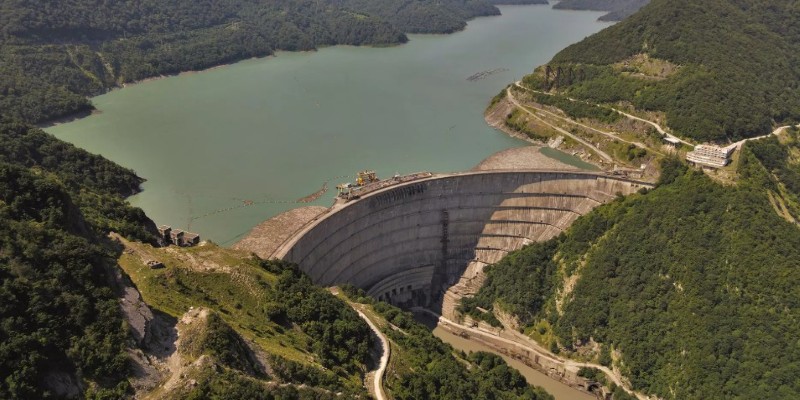
The Soviets didn't just build power plants; they built statements. Today, the dam continues to supply electricity to much of western Georgia, and visitors can tour part of the structure. It stands in stark contrast to the peaceful surroundings — thick forests, quiet hills, and the Enguri River below. Yet it’s a reminder of the large-scale planning that defined the Soviet approach to infrastructure.
Zugdidi’s Railway Station: Echoes Of Arrival and Departure
Zugdidi, close to the Black Sea and near the border with Abkhazia, isn’t always the first place travelers head to. But its railway station offers one of the most atmospheric glimpses into Georgia's Soviet past. Built with grand symmetry and clean geometry, the station has that same mix of optimism and sternness that marked so much of Soviet civic architecture.
Inside, faded mosaic tiles and tall windows frame the scene, though much of the space is now underused. There's an eerie quiet that hangs in the air. This was once a key transit point — trains heading in and out of Abkhazia would pass through here. Today, the station feels like it's waiting for something that may never return.
Conclusion
Georgia’s Soviet heritage isn’t confined to one museum or a handful of monuments. It’s spread across towns and buildings, in cracked mosaics and half-empty cities. It’s not always pretty, and it’s rarely presented with polish. But that’s what makes it real. These places offer a window into how the Soviet Union shaped Georgia — not just with ideology, but with bricks, steel, and routine. You can’t understand modern Georgia without brushing up against these remnants. They don’t always speak loudly, but if you spend time with them, they have a lot to say.






